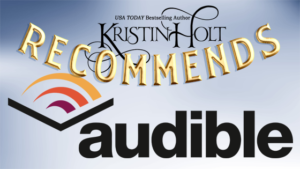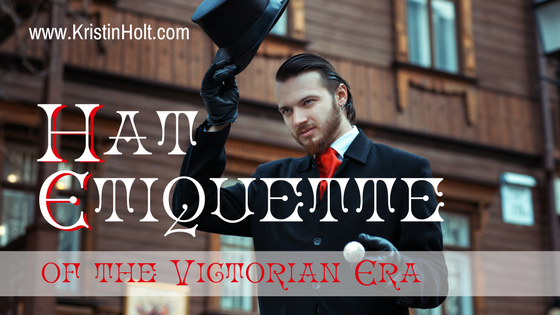
by Kristin Holt | Apr 5, 2017 | Articles
Etiquette governed much during the Victorian Era: courtship, marriage, mourning, letters, social calls, dancing, engagements and breaking of engagements, clothing…and men’s hats. When reading fiction and nonfiction alike, I’ve wondered about men tipping their hats to ladies, removing their hats (or not), giving their hats over to the butler (or not), wearing a Stetson inside or during a business meeting… What did good manners demand? How did a cowboy show respect? How did a lady know if a man hoped to stay awhile when he paid a call?
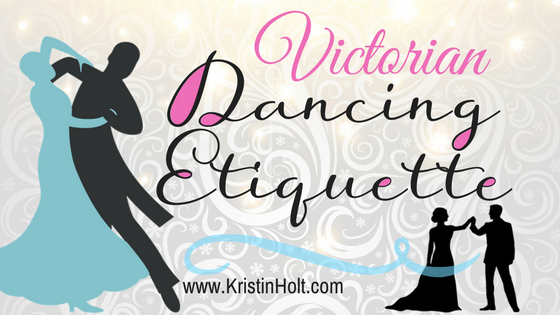
by Kristin Holt | Mar 9, 2017 | Articles
Etiquette governing balls and dances in the American Victorian era seems stuffy, old-fashioned, and strict to 21st century Americans. Every rule of decorum ensured good manners were in play, but most importantly, the moral purity and innocence of young women and young men were maintained. Etiquette governed everything from how a man asked a woman for a dance to how he could properly hold her hand while dancing, to how many dances that pair could have in one evening. This article contains the specifics propriety demanded, and the vintage sources where they may be found. Leap year turned some of the lady’s restrictions upon the men; see the true-to-history newspaper article from 1888 that starred in Sophia’s Leap-Year Courtship.

by Kristin Holt | Feb 21, 2017 | Articles
A bicycle built for two plays a role in my new release, Sophia’s Leap-Year Courtship. Such bicycles are romantic–and they’re making a resurgence. I see them in romantic bridal photography, all over Pinterest, and the research for the book showed me just when they were originally “a thing” and how they could fit into this book. Come see!
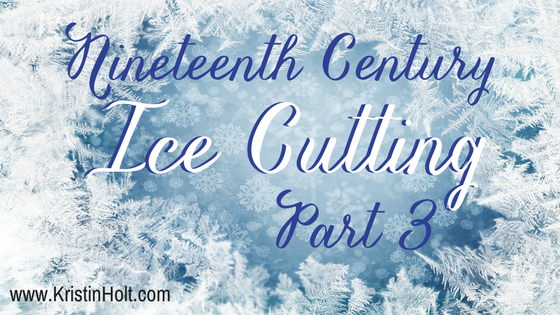
by Kristin Holt | Jan 28, 2017 | Articles
In the third and final article about Nineteenth Century Ice Cutting, I share some of the highlights of the history surrounding a Boston entrepreneur’s ice company, both domestic and foreign. Historic sources share insights and facts that make ice a pretty cool subject to study! See vintage images of ice cutters at work.
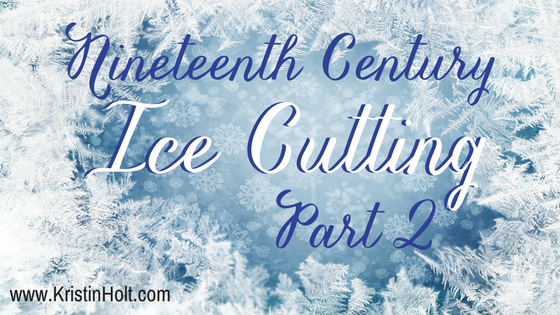
by Kristin Holt | Jan 25, 2017 | Articles
Nineteenth Century Ice Cutting, Part 2 (of 3): Staged as the adventures (and discoveries) of a boy in New England in the late 19th century, Lawrence’s Adventures, published in 1871 in Massachusetts, is instructive and entertaining. One of the chapters focuses wholly on the process of Ice-Cutting, and I share this now public domain content along with era-specific images showing the process. The information about how ice companies actually cut the ice from frozen lakes to provide Victorian America with the tons of ice demanded during the spring, summer, and autumn to sustain perishable food, chill beverages, transport perishable food via train, and aid the sick.












